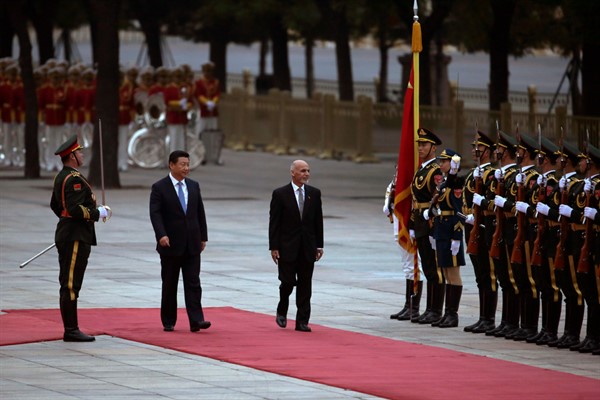For much of the past couple of decades, Afghanistan has been a rare exception to the strategic competition between India and China in South Asia. New Delhi never believed it could be the preeminent power in Afghanistan, unlike in other nearby countries like Sri Lanka and Nepal. Following the United States’ invasion of Afghanistan in 2001, India was happy to engage with Kabul under Washington’s security umbrella, while taking solace in China’s initial unwillingness to get more involved. A joint desire for a peaceful and stable Afghanistan even seemed to raise the possibility of cooperation between the two rivals.
But with India now recalibrating its China policy due to the recent military standoff along the two countries’ disputed border in the Himalayas, prospects for the two countries’ cooperation in Afghanistan are unlikely to materialize anytime soon. And with the U.S. withdrawing its troops from Afghanistan while regional powers jostle for greater influence there, India will be more concerned about China’s role in Afghanistan than at any point in the past.
Beijing has stepped up its engagement with varying Afghan factions in the past few years, fueled mostly by concerns that the impending chaos in Afghanistan after the U.S. withdrawal could have implications for China’s restive Xinjiang province, which shares a small border with Afghanistan at the tip of the narrow territory known as the Wakhan Corridor. China now seems willing to shed its previous aloofness vis-à-vis Afghanistan in favor of more active engagement.

